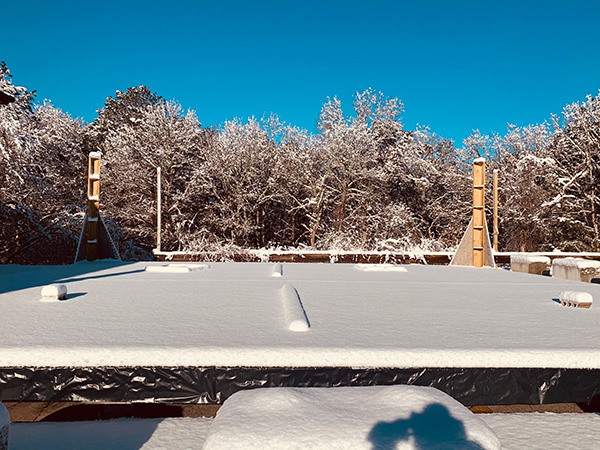Twirling through the Pandemic’s Tragedies
by Cole Allenby
When COVID-19 hit last March, there was confusion about the continuation of entertainment and athletic activities. Contact sports, such as football and soccer, had been initially banned along with the performative arts. While help was offered to rehabilitate stunted sports promptly through a progressive plan, many of dance studios/companies had been left in the dark regarding the boundaries in their emergence after the pandemic had choreographed many unpleasant pirouettes of caution and sanitation.
The central questions that had been spinning in many studios’ minds focused on the qualifications to be deemed as a small business as well as the immensity of their financial aid; no responses had been capable of matching the pace of the pandemic’s capriciousness. Now, almost a year into this pandemic, dance studios and companies have established their own twists to stay open.

Image: courtesy of Cole Allenby
Many local studios are following guidelines that have been set by both the state and by other larger dance companies. This guarantees that they have the best tools at hand to prevent any COVID-19 transmission and spreading. For example, many local studios are following the state guidelines that have been spurred for them, small businesses, and companies such as Boston Ballet. These self-created guidelines include measures such as social distancing rules, smaller class sizes, staggered arrival times, and shorter overall class length.
“I am so grateful that these kids have been so willing to transition to remote classes,” said Sheena Harper, the owner and artistic director of Harper Dance Center in March of 2020, “and how smoothly the process has gone! I feel so lucky to have the most supportive families at HDC! I can’t thank you enough for your continued support, kind words and emails during these unsettling times.”
To keep in accordance with state guidelines, studios have required that cloth masks are to always be worn [while dancing] and have extended their creative tendons to spin through the limited capacity and sanitation. Much of this is worth it to the attendants of these studios as they have witnessed a heartening leap from the initial motions of teaching and attending classes from home to the present.
“I think the hardest part about all of this,” said Laura Sciortino, the owner and artistic director at Turning Pointe Dance Studio in Falmouth, “is that dance teachers have such a love and passion for their students and their art that the most important thing to them was to keep their dancers healthy both physically and
mentally and keep their training up. Once we were able to get back into the studio, we worked for several months just one on one with private lessons.”
Sciortino described all the efforts to keep her students dancing from her enthusiastic instruction to the passion from guardians. “It was truly magical seeing our students dedicate their time to private and zoom even when this was a struggle. It was also wonderful to witness parents support their child’s efforts.” According to Sciortino, Turning Pointe has created an outdoor dance studio to keep students dancing through the summer safely, abiding by state guidelines. The studio has installed fences in their yard for outdoor ballet camps; other additions have included air purifiers, hand sanitizer dispensers, PPE, and foggers to disinfect the studios.
“I think the most amazing feat was dancers learning to dance in face masks,” Sciortino said. “It took a little while to get used to, but dancers persevere and it’s amazing how far they have come to continue doing what they love. The dance community has been amazing in not giving up!” Sciortino also discussed the importance of her students’ mental health along with the virtual options—Zoom or Facebook Live—“to keep children from becoming depressed and lonely.”
Thanks to the funds that the State of Massachusetts has provided, Turning Pointe has been able to remain open, but many smaller studios have received a tentative abandonment, financially and physically. Turning Pointe is encouraging new and/or abandoned dancers to keep to the tempo of hope in these unsure times; studios will do what is possible to keep their doors open.
Categories: Arts & Entertainment, Sports